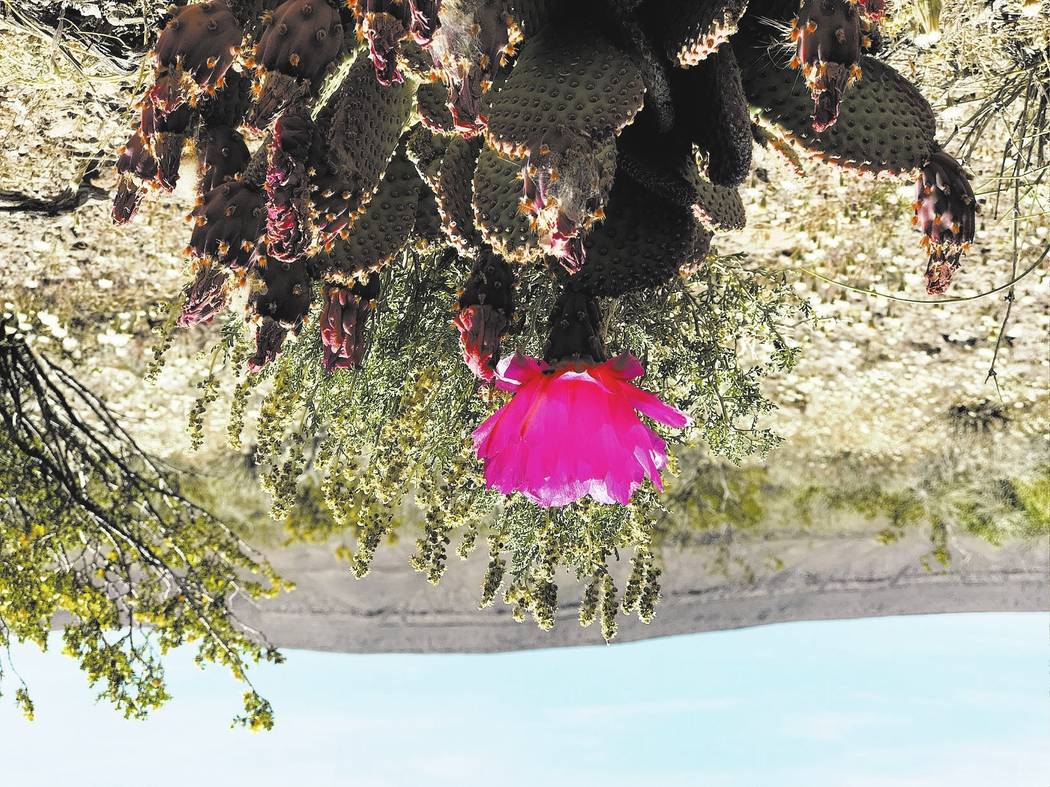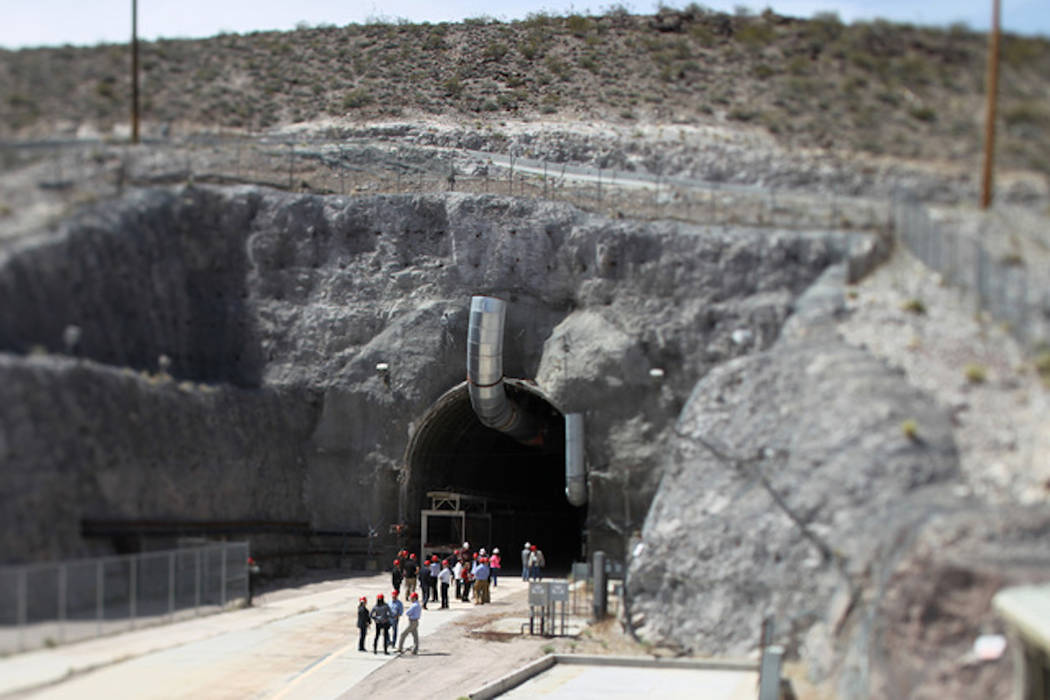GAO outlines $330M ‘roadmap’ to restart Yucca Mountain licensing
WASHINGTON — Restarting the licensing process to determine whether a nuclear waste repository could be built at Yucca Mountain would cost in excess of $330 million, the nonpartisan investigative arm of Congress reported.
The Government Accountability Office on May 26 released a 49-page report that included the time and cost estimates and identified four steps the government must take to resume licensing proceedings for the proposed permanent repository for high-level nuclear waste 100 miles northwest of Las Vegas.
The steps identified by the GAO are:
■ Receiving direction to resume the licensing process from Congress so the Nuclear Regulatory Commission and other interested parties can determine funding needs for the proceeding;
■ Rebuilding the federal government’s organizational, scientific and legal capacity necessary for the licensing proceeding;
■ Reconvening the parties and preparing for “adjudication” — a trial-like proceeding during which opponents’ objections to the proposal are considered — including witness depositions and evidentiary hearings;
■ Carrying out the process’s remaining steps, including the NRC’s final decision on whether to authorize construction of the repository.
GAO investigators issued no recommendation on the viability of storing nuclear waste at the site or restarting the licensing process, which began in 2008 and ended in 2010 when the Department of Energy, under former President Barack Obama, “said Yucca Mountain was no longer a workable option.”
DOE’s project team depleted
As noted in a Las Vegas Review-Journal article last month, the second step is likely to be the most daunting.
The GAO report notes that after DOE withdrew its licensing application, it dismantled the Office of Civilian Radioactive Waste Management, which was established to manage Yucca Mountain, eliminating 180 positions.
GAO said it took DOE years to recruit and train the proper mix of scientists and engineers to manage the program.
To restart the licensing, GAO said DOE would need to rebuild its staff to defend the application, build a hearing facility in Las Vegas and acquire land and water rights.
Foes of the project, including Nevada officials and all but one member of the state’s congressional delegation, say that restarting licensing would be throwing more money into an unworkable project.
“The GAO report confirms the colossal waste of taxpayer resources and time it would take to revive this dead and doomed project,“ said Rep. Dina Titus, D-Nev. ‘‘I will continue to oppose any and all efforts to throw away resources to restart this boondoggle of a project.”
President Donald Trump has proposed in his 2018 fiscal budget some $120 million for the DOE to resume the licensing process at Yucca Mountain and examine a temporary storage program for 80,000 metric tons of nuclear waste produced by 33 electrical generating plants nationwide.
The House Energy and Commerce Committee is also writing legislation to address nuclear waste policy, including permanent storage at Yucca Mountain. Lawmakers on that panel said the GAO report is a guide to continue their work.
Report seen as ‘road map’
“While some challenges remain, this report provides DOE and NRC a road map to take the necessary steps to complete the Yucca Mountain license,” Reps. Fred Upton, R-Mich., and John Shimkus, R-Ill., both Energy subcommittee chairmen, said in a joint statement.
Shimkus and Upton said completing the licensing process “is of critical importance because it provides the state of Nevada the opportunity to publicly make (its) case in front of independent NRC judges.”
The state of Nevada and all but one member of its congressional delegation – Republican Rep. Mark Amodei — have voiced their opposition to locating the repository in the state, noting that the Silver State does not generate nuclear waste and that its presence could damage its key tourism industry.
Yucca Mountain is in Nye County, which supports the continuation of the licensing process. Several other rural Nevada counties also want the process to continue to determine whether the site is workable.
In its opposition to the repository, Nevada has denied the federal government water rights for the site, and the Legislature has approved funds to litigate DOE efforts on licensing.
Bob Halstead, Nevada’s point man in opposing to the project, says the state agrees with many of the findings of the GAO report.
That includes the scientific and legal challenges that DOE faces, “including the need to secure land access and water rights” at the site.
But he said he thought “GAO let DOE off the hook regarding costs.”
“We think licensing would likely cost $2 billion or more based on past estimates, and we told GAO that,” he said.
















